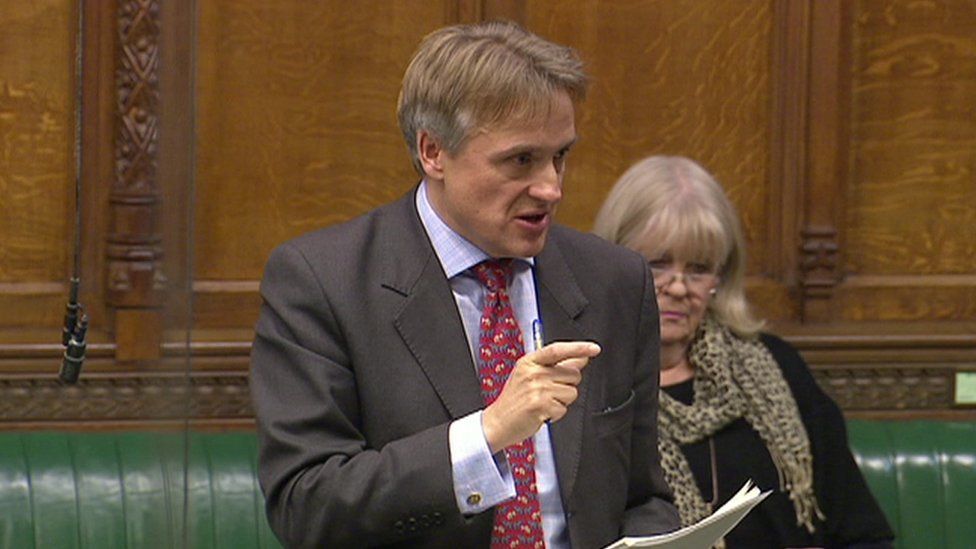Commons votes to end automatic naming of arrested MPs
- Published

Any arrested MP will not automatically be identified in the Commons after MPs backed changes to its procedures.
In future, the MP involved will be consulted and named only if there is an issue of "parliamentary privilege or constitutional significance" at stake.
The cross-party Procedure Committee said revealing names of arrested MPs was incompatible with a privacy right.
Chairman Charles Walker said he was not asking for special treatment for MPs but for the law to be applied equally.
The Commons approved changes to the existing rules, which require the police to notify the Speaker when an MP is arrested and for the Speaker in turn to tell the House, without a formal vote.
Mr Walker, the Tory MP for Broxbourne, in Hertfordshire, told the Commons that MPs should have the same rights to privacy as any other citizen, and in future their names should not be put in the public domain if they were arrested, unless this was directly connected to their role as an MP.
But objecting to the change, Labour MP John Mann argued that it would give MPs special rights in law that do not apply to everyone else.
Deputy Commons leader Therese Coffey said it was up to the Commons to decide although the government has indicated that the change brings MPs into line with the rest of the public.
The Procedure Committee's recent report revealed that in the last Parliament, Tory MPs Nigel Evans and David Ruffley were named after their arrests. Mr Evans was later acquitted of sexual offences and Mr Ruffley cautioned for assault.
Green MP Caroline Lucas was arrested during an anti-fracking protest and later acquitted of obstruction.
Meanwhile it has emerged that police have been involved in a total of five cases linked to MPs' expenses under the current system, with none of the politicians identified.
In December it emerged that the Independent Parliamentary Standards Authority (IPSA), the MPs' expenses watchdog, had referred three potentially criminal cases to police in March without any public announcement, or identifying the individuals involved.